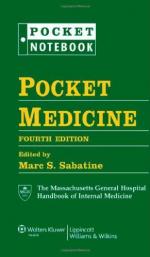|
This section contains 1,649 words (approx. 6 pages at 300 words per page) |

|
Overview
In the sixteenth and seventeenth centuries there was considerable debate among physicians about the appropriate philosophical basis for their art. The humoral theory of Galen and Avicenna remained influential while the iatrochemists advocated a more aggressive application of new chemical remedies. Drawing on Descartes, Galileo, Newton, and Harvey, the iatromechanist school began to think of the human body as a machine. In contrast, the early vitalists believed in a vital force that differentiated living matter from nonliving. The boundaries between the different systems were not rigid. The majority of medical practitioners, not holding university degrees, relied more on first-hand experience and traditional medical knowledge than on a philosophical framework.
Background
With the appearance of universities and their faculties of medicine in the twelfth through fourteenth centuries, physicians educated at universities became eager to...
|
This section contains 1,649 words (approx. 6 pages at 300 words per page) |

|


